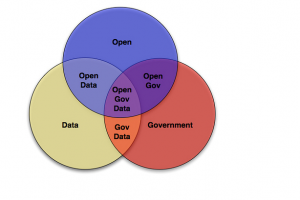Open government is a political doctrine that seeks government transparency through citizen participation and to move from representative to participatory democracy.
One of the tools of open government is open data, which requires publication of data held by the state, making them available to citizens. The data should be published as they are (unprocessed), standard, open and interoperable, allowing easier access and reuse.
Other tools of open government are the use of social networks and access to public information, among others.
Uruguay attended the global meeting of the Open Government Initiative that was held in Brasilia on April 17 and 18 (http://www.opengovpartnership.org/), after having joined the Alliance for Open Government in November 2011. The Working Group on Open Government Society, which was composed of representatives of AGESIC, OPP, the Unit for Access to Public Information, the Ministry of Economy and Finance, the Ministry of Foreign Affairs and the National Statistics Institute, was established through a decree.
The Alliance for Open Government is a new multilateral initiative aimed at promoting specific commitments of governments to promote transparency, increase citizen participation in governance, fight corruption and take advantage of new technologies to strengthen governance. The official launch of the Alliance was announced on September 22, 2011 in the 66th Session of the United Nations General
Assembly in New York.
Dr. Flavia Baladan outlines the crossing of the open government and open data concepts as follows:

In our country, Montevideo City Hall was a pioneer in the field of open government. AGEV also publishes Accountability, by describing the distribution of money. The open data page in our country is www.datos.gub.uy
Therefore, we cannot confuse the concept of open government with open data. Open Data is closely linked to personal data protection or privacy. You should consider that the decree did not include the Regulatory Unit and Control of Personal Data in the open government working group, however, this unit should have a role in the field of open data definitions.
Open data are data available to the public, reused to provide new services. From the technological point of view there is no consensus on the format to be published, we discuss whether it should be pdf, word, etc. The published data are not commercial data, they do not have to be licensed so they can be reused. The State should filter the data, in order to have good quality information. Open data should not be confused with information reuse.
U.S., England and the Basque Country have great development in this area.
In our country, taking into account the Law on Access to Public Information (Law N° 18.381) secret or confidential information cannot be published.
But what is the relationship and the challenge with data protection?
First, the data should be published anonymously, but anonymity systems are not as developed as they should. That´s why , there is a risk that personal data may be published. Also, there are techniques to anonymize data and techniques to identify people. Therefore, the challenge is how to imitate the publication of personal data.
Also, companies are concerned about the publication of their data, based on the protection given in Uruguay under the Law N° 18.331 to the data of legal persons. The URCDP should regulate the scope of protection of corporate data as part of the open data policy.
There are two solutions: privacy by design and the use of licenses on the use of data. For example, the United States regulates by clauses placed when publishing the data.
Open data or open government means the existence of transparent government, not of transparent citizens. All agencies must use the best techniques and be audited. If you decide to publish personal data, the person concerned must be notified previously so they can take protective measures.
Now, is it necessary to regulate open data policies? This is a contested issue.
Spain has regulated the reuse of information, but keep in mind that it has no public information access law. The next question is whether the law regulating access to public information is enough.
In our opinion it is necessary to regulate in this area, being the URCDP the one to set the protection policy of such data. One question that arises is: What about sensitive data? Health data are very useful for pharmaceutical companies, for example, to know how many people use certain medication. Undoubtedly, this information could be posted if it is dissociated. Moreover, our law requires the existence of data that do not need consent although they must maintain their intended use.
However, these data may be published indeed. In this case, will they become a public source? Will they be used for any purpose?
We believe it will be necessary to provide technical and legal measures to achieve the balance between the publication of open data and the protection of personal data.